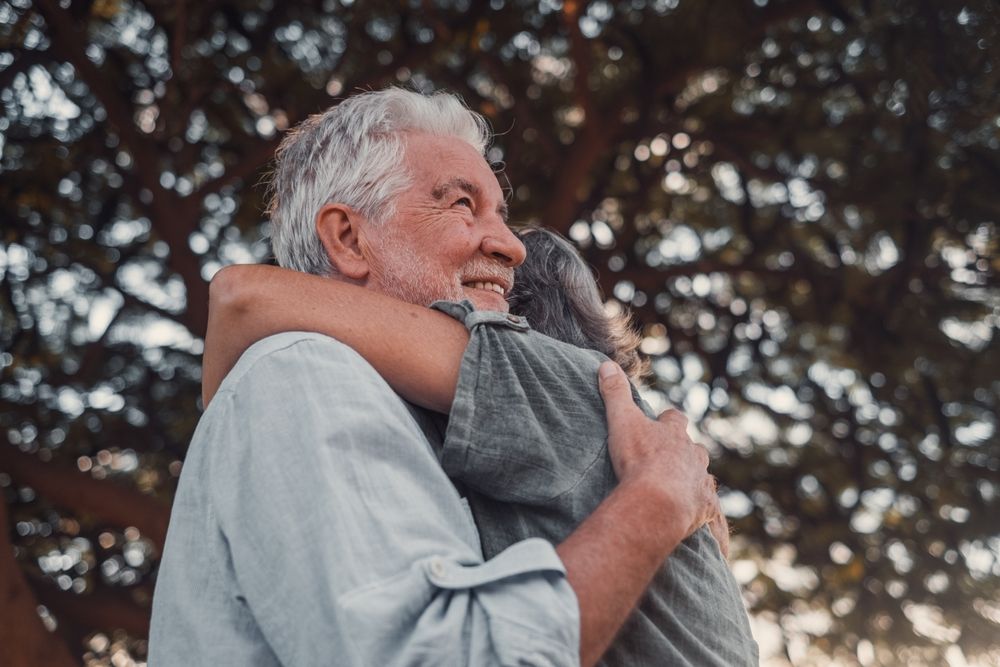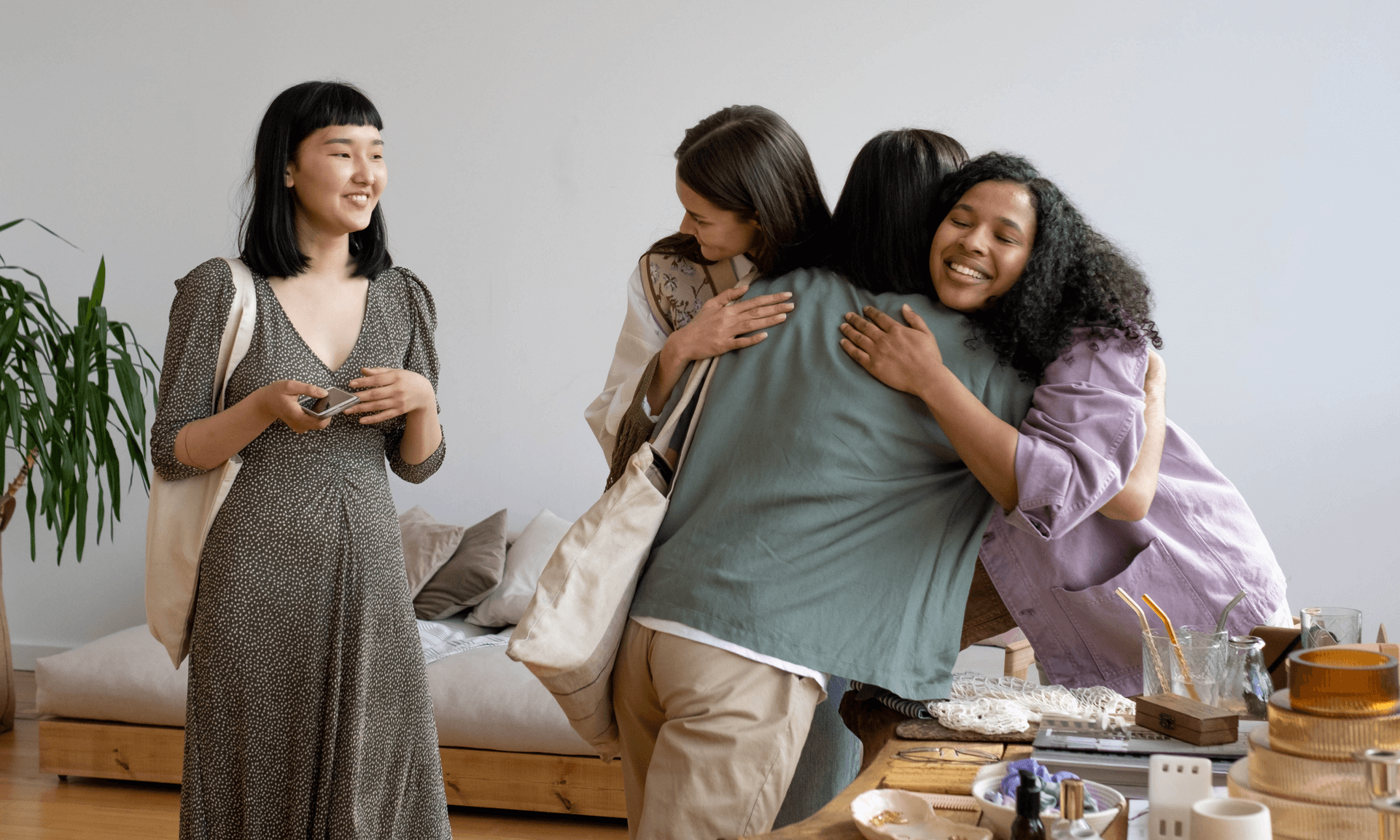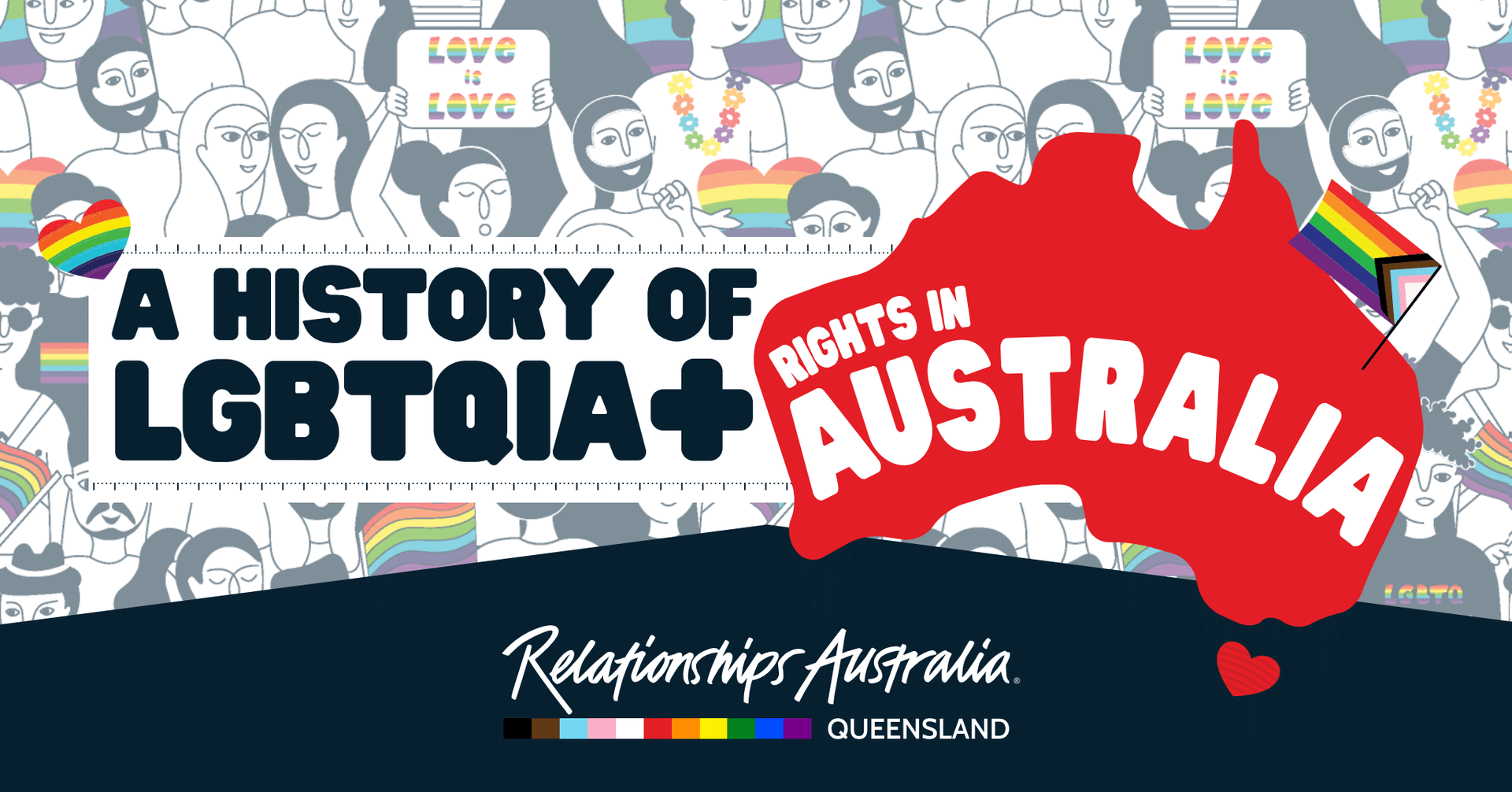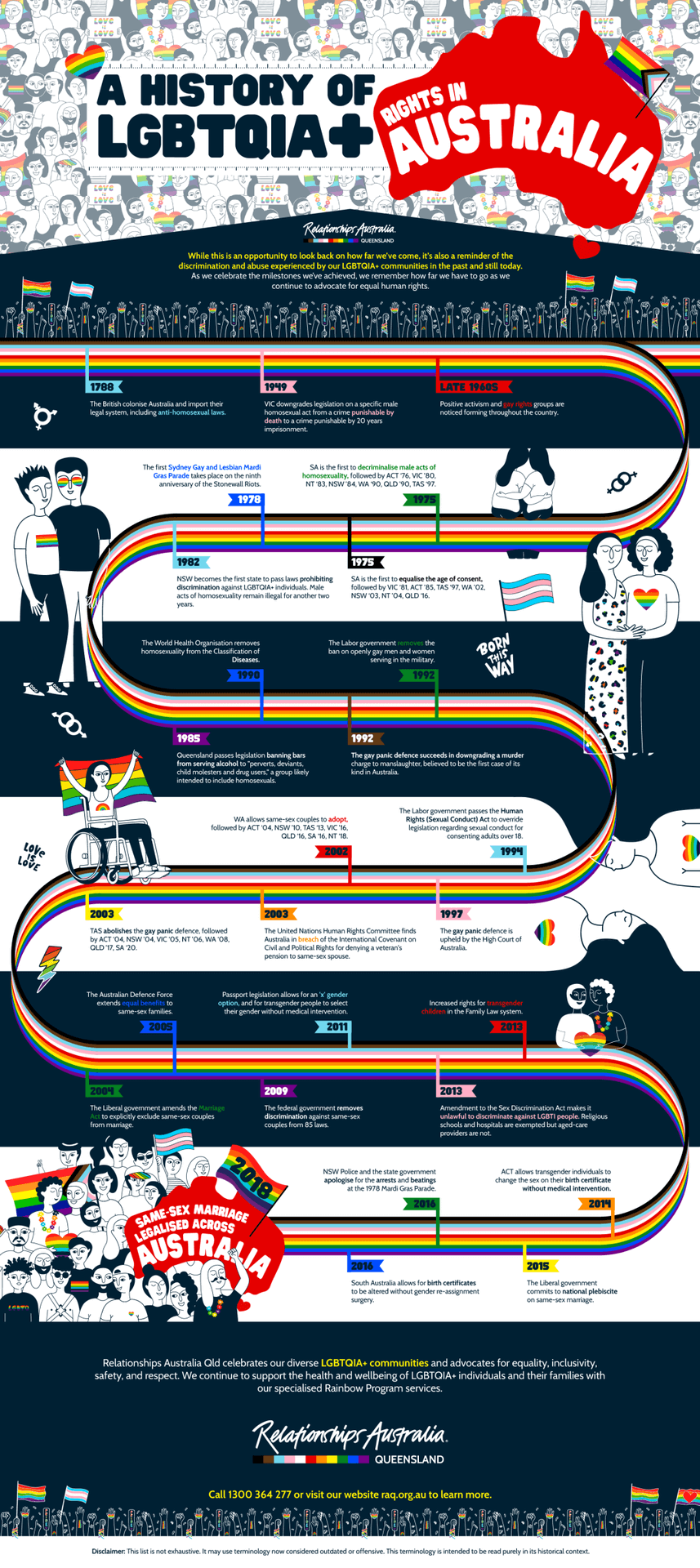The LGBTQIA+ senior community is expected to grow in the coming years. Older people who identify as LGBTQIA+ face unique challenges, which can make it difficult to feel a sense of security and belonging.
Being informed will help you to become a better ally to your older LGBTQIA+ loved ones.
We hope these tips can help you to be a supportive ally of your LGBTQIA+ parent, grandparent, or older loved one.
Create a welcoming environment
Your support is the easiest and best thing you can offer an LGBTQIA+ loved one.
To create a welcoming environment:
- Don’t make jokes or laugh
- Use a gentle tone of voice
- Be sensitive to their lived experiences
- Don’t say “I always thought you were…”
- Be mindful of facial expressions and reactions
- Don’t demand information or ask intrusive questions.
Be informed about their challenges
Older LGBTQIA+ folks have faced a lifetime of evolving laws, legislation, and societal views regarding their identity. In Australia, these individuals have experienced both obstacles and milestones on the journey towards achieving equal human rights.
LGBTQIA+ rights groups have been active in Australia since the 1960s. Did you know that homosexuality was classified by the World Health Organisation (WHO) as a disease until 1990? Did you know that openly gay individuals were banned from serving in the Australian military until 1992?
You can learn more about Australia’s history of LGBTQIA+ rights here.
Let them know it’s okay to ask for help
Substantial data shows that LGBTQIA+ Australians experience both abuse and mental health problems at overwhelmingly high rates. Over 60% report experiencing depression. Over 38% report feeling abused by a family member, and over 41% report feeling abused by a partner.
Let your older loved one know that there are safe support services designed with their unique needs in mind. You can offer to accompany them or drive them to any appointments or meetings.
Help them access safe, inclusive services
Your older loved one may not realise that there are services whose goal is to protect LGBTQIA+ seniors from loneliness, social isolation, and elder abuse.
“LGBTQIA+ elders may draw upon their years of experience of the dangers of coming out, and perhaps choose isolation and loneliness over risk of abuse.”
-Claire Allen, AIDS Council of New South Wales
Australia’s LOVE Project offers a list of ageing services that are inclusive and safe for LGBTQIA+ seniors.
You may also be able to identify if a service is inclusive by looking for representative imagery, words, and marketing.
Help them find safe aged care options
Due to discrimination and needs often not being met by service providers, the Australian government has identified LGBTQIA+ seniors as having special needs for aged care.
LGBTQIA+ seniors may experience obstacles such as pressure to hide their identity, or having no way to disclose their identity.
Australia is the first country which has developed a National LGBTI Ageing and Aged Care strategy, which aims for all seniors to have the same opportunities in aged care. You can learn more about finding inclusive aged care in Queensland on the MyAgedCare government website.
The Silver Rainbow Project provides further education on meeting the needs of seniors who identify as LGBTQIA+.
Our Rainbow Program supports the mental health and wellbeing of individuals who are gender and/or sexuality diverse.
If you or an older person you know is experiencing or at risk of elder abuse, our Elder Abuse Prevention and Support Service (EAPSS) is here to help. We can help you explore your concerns and possible solutions in a safe, supportive environment that prioritises the wellbeing of the older person.
You can learn more about EAPSS here, or by calling 1300 063 232.
Want to receive updates on our Senior Relationship Services blog posts?



